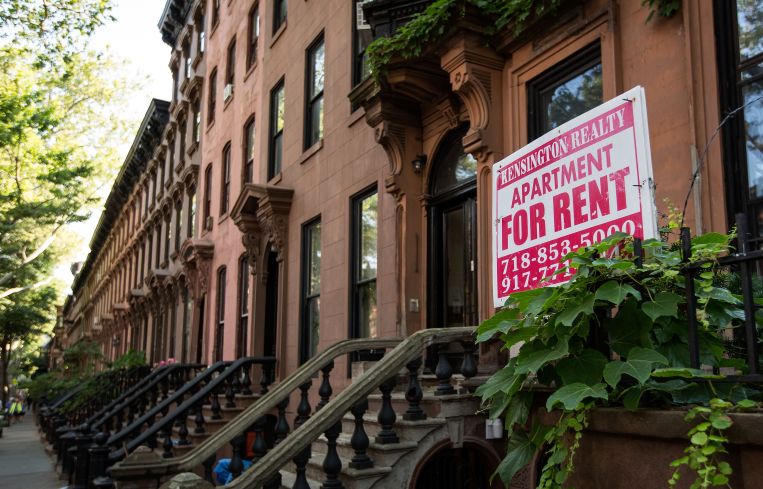Broker Fee Ban Put on Hold Amid Legal Challenge
A judge ruled that brokers can still charge renters a fee amid a legal challenge to the state's decision to bar the practice.
By Nicholas Rizzi February 10, 2020 5:59 pm
reprints
New York City renters aren’t free of shelling out for brokers’ fees just yet.
A judge issued a temporary restraining order on Monday against the New York State Department of State’s (DOS) guidelines that require landlords, not tenants, to pay brokers’ fees on apartment rentals. The move followed a legal challenge to the law by the Real Estate Board of New York (REBNY) and several brokerages.
The order, issued by Judge Michael Mackey in New York Supreme Court in Albany, will allow brokers to continue to collect their fees — regardless if they were hired by a prospective renter or, as is usually the case, by the landlord — until at least next month, when the DOS is expected to answer REBNY’s suit.
“[The order] means that thousands of hardworking, honest real estate agents across New York State can do business in the same way they did prior to last week’s DOS memo without fear of discipline by the DOS,” REBNY president James Whelan and New York State Association of Realtors president Jennifer Stevenson said in a joint statement. “We look forward to ultimately resolving this matter in court in the weeks ahead.”
A DOS spokesperson did not immediately respond to a request for comment.
Mackey’s decision comes less than a week after the DOS released updated guidelines to the rent reforms passed last summer, known as the Statewide Housing Stability and Tenant Protection Act. The Feb. 4 guidelines expanded on language in the rent laws, and explicitly barred brokers from charging the tenant a broker fee in cases where they’d been hired by the landlord.
The rent laws state that landlords may only charge up to $20 in application fees to renters, on both rent-stabilized and market-rate apartments. They also state that brokers, when hired by the tenant, may charge a brokerage fee, which can be about 15 percent of the yearly rent in some parts of the city. For example, an apartment renting for $3,000 per month would command a 15 percent broker fee of $5,400.
The clarifications caused an uproar in the real estate industry, which argued that it would hurt brokers’ ability to make a living and drive the price of rents up across the city. Others have said the impact would be worse to smaller, mom-and-pop landlords around the city unused to the fees.
“The people who build luxury high-rises have always paid brokers,” Eric Benaim, the CEO of Queens residential brokerage Modern Spaces, previously told Commercial Observer. “[Smaller landlords] can’t afford to have an empty apartment un-rented. Now they have to pay the fee and they lose a month of income.”
Tenants’ rights organizations hailed the decision as a major win for tenants with Michael McKee, the treasurer of Tenants PAC, saying it reversed a “scam” system in place for years.
“It’s going to make a huge difference in terms of affordability, it’s a long-overdue reform,” McKee previously told CO. “Where the tenant finds the apartment, or where you answer an ad for an apartment, and a broker presents themselves as a gatekeeper, this collusion between landlords and brokers. It’s high time it stopped.”
REBNY banded together with several brokerages — including Sotheby’s International Realty, Douglas Elliman Real Estate and The Corcoran Group — to file the lawsuit to reverse the decision.
The suit argues that the updated guidelines are “so divorced from the language of the [Statewide Housing Security and Tenant Protection Act] that it cannot be understood as a mere interpretation of the Act. Instead, it is clear that here, the DOS usurped the role of the legislature and that its actions constitute an illegal exercise of legislative power,” according to court documents.
REBNY is expected to appear back in court on March 13 in the case.
UPDATE: This story has been updated since publication to clarify the rent law language as it relates to landlord fees.



